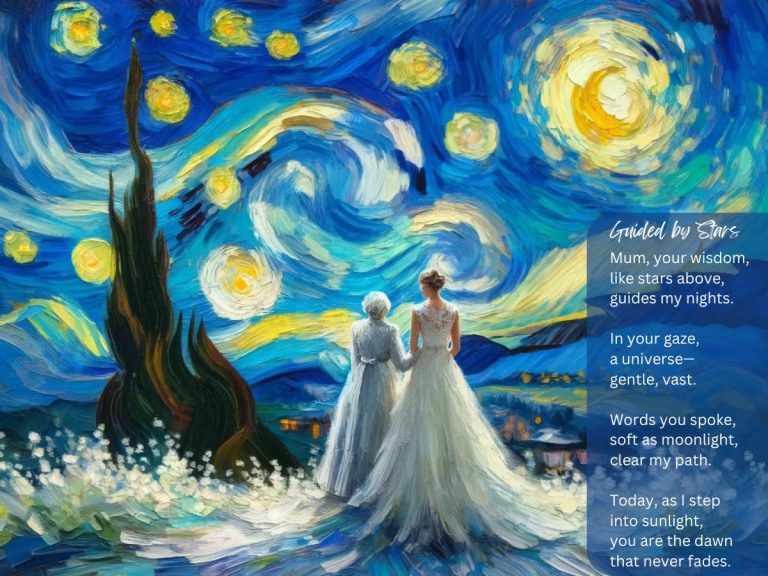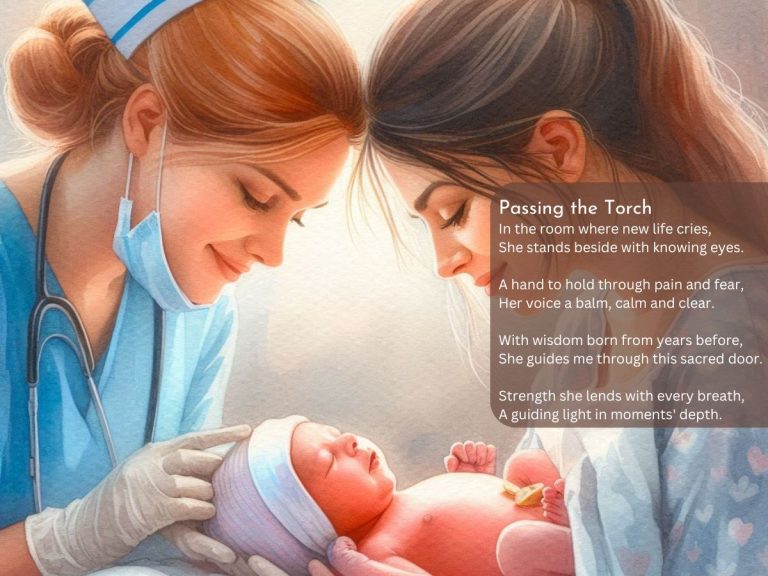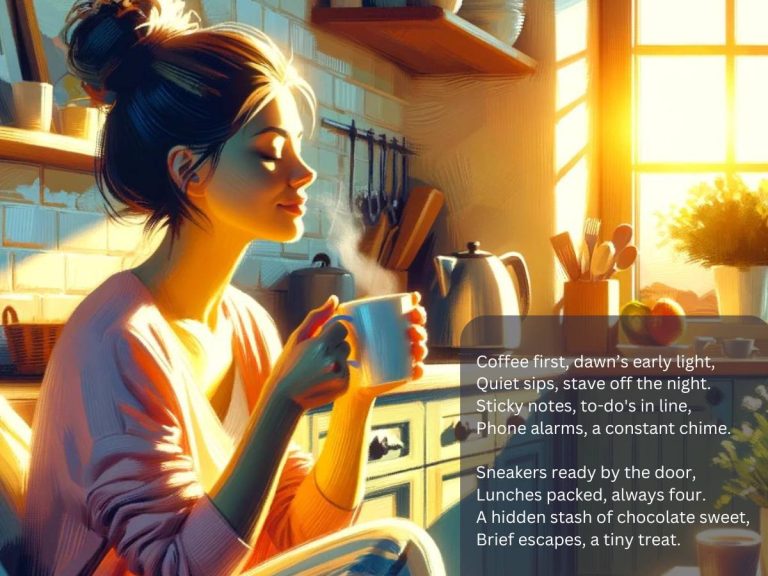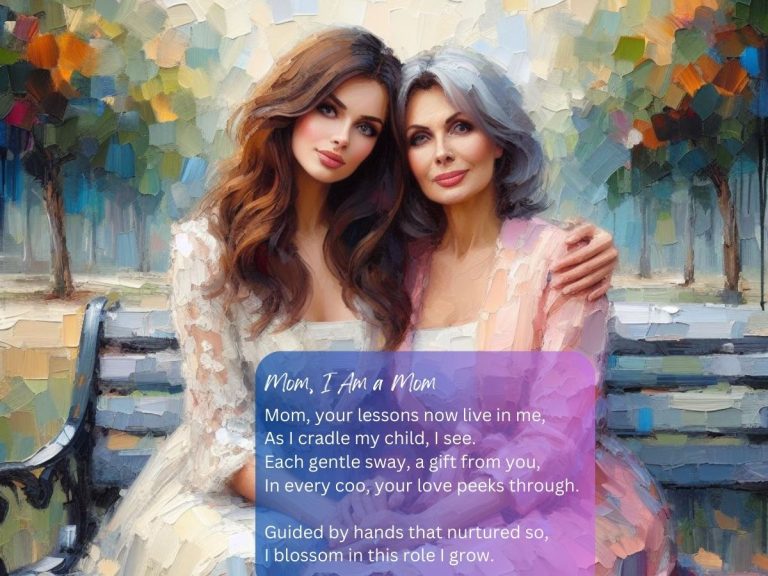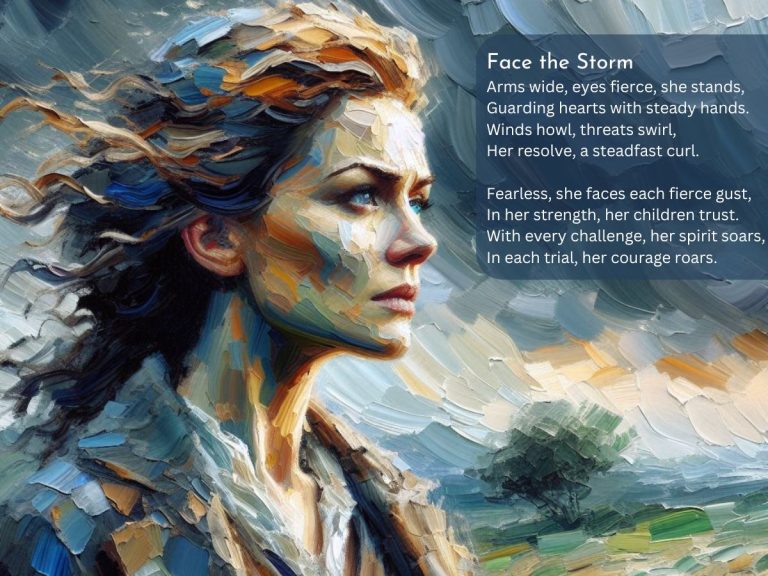Poems About War and Death
Table of Contents
Conversations with Silence
Hey, have you seen the fields lately?
Not green, not anymore.
They wear the season's latest—
Shades of sorrow and undone dreams.
Someone told me, "That's just how it goes,"
As if war were as natural as rain.
And death? It's just a visitor,
Frequent, uninvited, hanging around too long.
"Look," they said, pointing to the silent hills,
"Heroes are sleeping there,
Beneath the earth's cold blanket."
But I only saw stolen breaths,
Unfinished stories,
And names now etched in stone.
We talk about tomorrow like it's a promise,
Yet for some, tomorrow is just a word,
A place they'll never reach.
Because war came knocking,
And death, well,
It decided to stay.
They say peace will find its way back,
Like a lost dog returning home.
But when? And at what cost?
"How many more?" I ask.
But only silence answers.
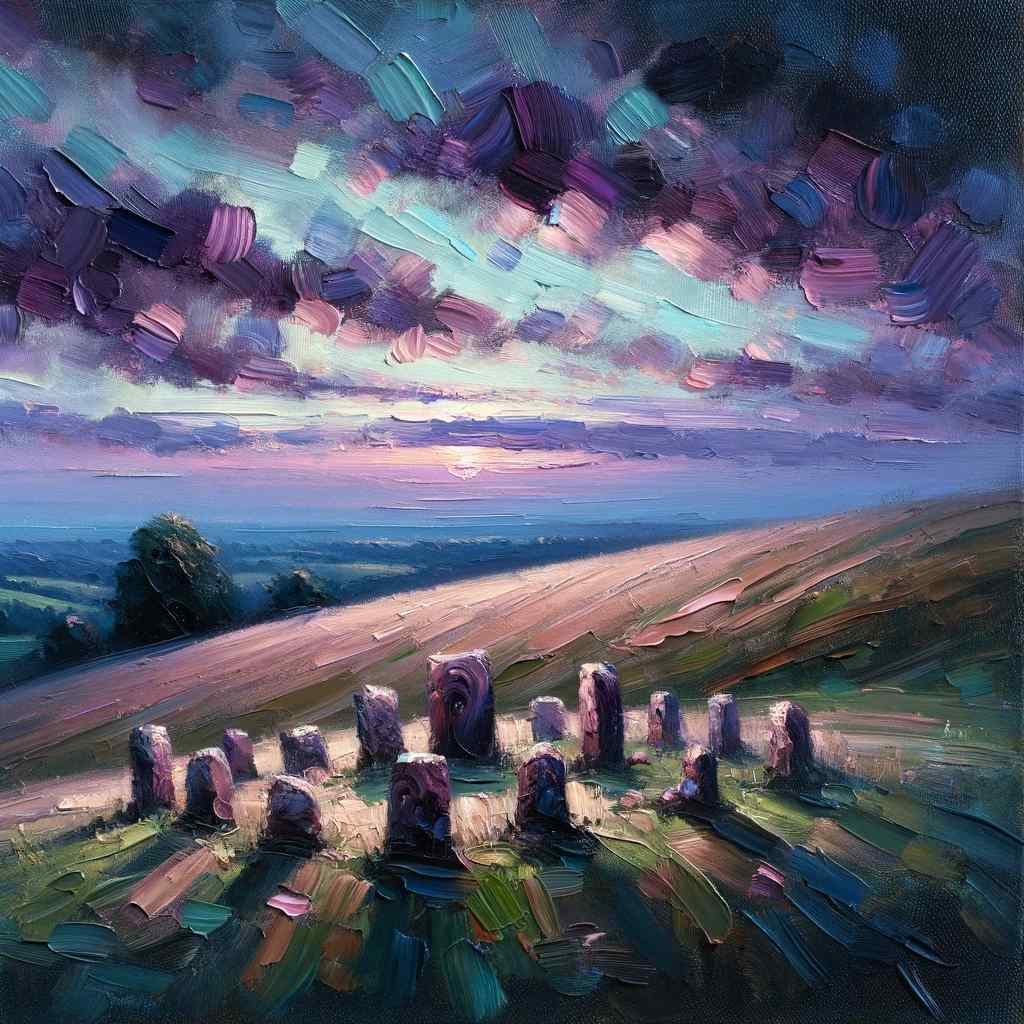
Meaning
“Conversations with Silence” delves into the harsh realities of war and the inevitability of death that accompanies it, through a candid, conversational tone. It juxtaposes the mundane with the profound, portraying the battlefield not just as a place of conflict but as a canvas of loss—where the natural and the nurtured are overwritten by sorrow and voids left by unfulfilled lives. This poem reflects on the normalization of such immense loss and the passive acceptance of war’s consequences by society. It questions the promise of peace and the price paid in lives, emphasizing the silence and absence where voices, dreams, and futures should have been.
Inspiration Behind
The inspiration came from observing how war and death are often sanitized or romanticized in discussions, overshadowing the individual stories and dreams shattered by conflict. I wanted to strip away the grand narratives to focus on the intimate, the personal, and the irreplaceable losses that wars entail. The “conversation” in the poem is not just with another person but with society, with the self, and with the silence that follows unanswered questions about the cost of conflict. It’s about confronting the uncomfortable, the grief, and the ongoing wait for a peace that seems perpetually deferred, and the realization that for many, peace and tomorrow are just words.
Shadows Cast Long
Night descends, heavy, still,
War's echo, a bitter chill.
Shadows cast long, wide,
Where hope and despair collide.
Stars, silent above,
Witness to what we speak of.
Death's dance, swift, unseen,
Leaves only spaces in between.
In this play of dark and light,
We seek meaning, wrong or right.
Yet, in war's unforgiving night,
Even shadows yearn for daylight.
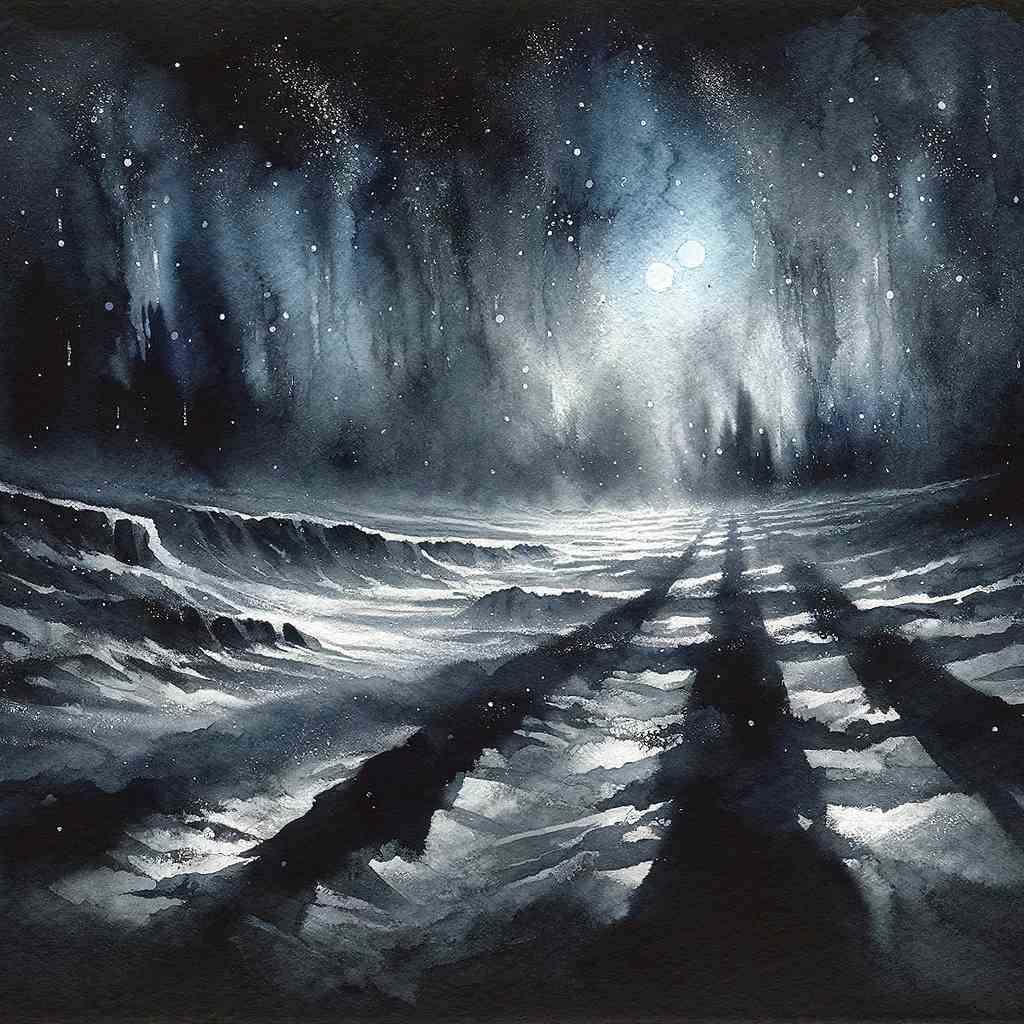
Meaning
“Shadows Cast Long” is a contemplative piece that navigates the stark realities of war and death through the imagery of night and shadows. It underscores the heaviness and stillness that accompanies conflict, creating a landscape where hope and despair are entangled. The poem hints at the silent witnesses of war—the stars—and the unseen, swift movements of death that leave voids in their wake. It explores the quest for meaning amidst the chaos of war, acknowledging the inherent desire for light and understanding even in the darkest times. This poem reflects on the universal yearning for peace and the somber acceptance of the inevitabilities of war.
Inspiration Behind
Inspired by the contrasts found in the quiet moments of nighttime and the harsh realities of conflict, “Shadows Cast Long” seeks to capture the emotional and philosophical struggles faced in times of war. The imagery of night and shadows serves as a metaphor for the uncertainties and the often unseen consequences of war, while the stars represent the distant, silent observers of human strife. This piece was born from a reflection on the dualities of existence—light and dark, hope and despair, life and death—and the human condition’s resilience in seeking light amidst darkness.
End Words
The Poems About War and Death navigate the themes of war, loss, and the search for light in the shadows of conflict with a reflective and contemplative tone. Through vivid imagery and thoughtful exploration of the human condition, they convey the complexities of hope, resilience, and the longing for peace amid the ravages of war. Each poem, with its unique perspective, contributes to a broader understanding of the impact of conflict on the human spirit, emphasizing the universal desire for a brighter, more peaceful future.

